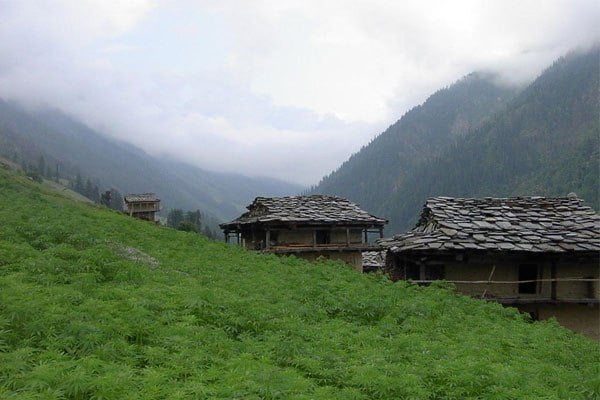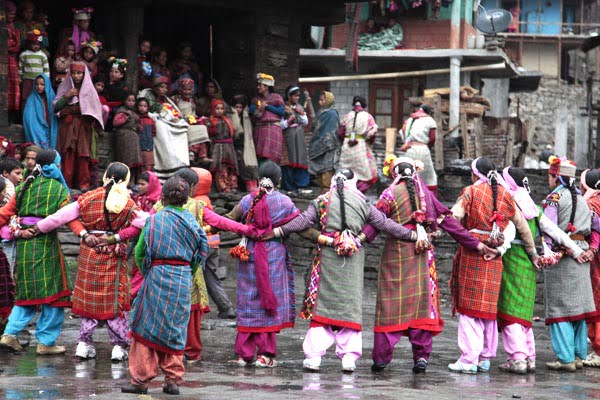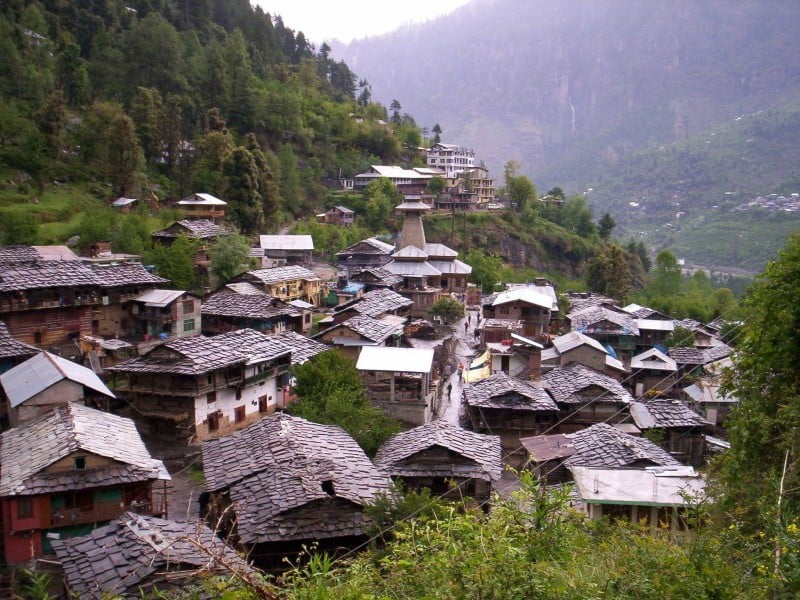Malana is an isolated village in the famous Parvati Valley of Kullu district, Himachal Pradesh. For people here and outside, this village nestled between mountains has gained popularity for its famous hashish – Malana cream.
Interestingly, it doesn’t seem that the local Malanis are quite happy with their representation outside their village, and had always wanted to change that. Until it finally happened without any askance.

What went wrong?
Malana claims to be one of the oldest democracies in the world with a properly organised system of representation. They have their own customary parliamentary system that has a two-level hierarchy – the upper house is called jayeshthang and the lower house is called kanishthang.
At the top of the hierarchy rests an oracle who interprets the messages of the local deity of Malanis, Jamlu devta.
Recently, Malanis called a parliament and it was discovered that the deity was unhappy with the rapid commercialization of the village due to narco-tourism. As a result, the deity ordered that Malanis should prevent renting their properties to people from the outside in the form of restaurants or guest houses.
The population of 4700 people holds up to a dozen guesthouses.
Is this xenophobia?
Malanis believe that they are the descendants of Alexander the Great, and therefore have a different set of beliefs. Traditionally, a non-Malani is not allowed to touch the homes or temples of Malanis. Malanis even reject physical contact with any outsider.

Throughout all these years, they have insisted on making themselves distinct and haven’t completely integrated into the Himachali society – a place which is “outside” for them.
People in Malana had banned tourists from taking photographs as they believed their village was being appropriated for its hashish.
The Malani parliament decided to undertake the orders of Jamlu devta, not only because they were threatened by the wrath of the deity in case of non-compliance but also because Malanis want the world to explore another part of their heritage which is now eclipsed. Malana is being increasingly exoticised only for its hashish.
Cannabis trade, the villagers see, has defamed their village.
In such a time, curbs on guesthouses can be a welcome step, as villagers now want to isolate themselves and completely redefine their image.
This move, as it can be seen, is particularly aimed at foreign travellers who discovered this extraction of narcotic from hemp, which the Malanis traditionally used to make baskets and ropes from.
It can be argued that the traditional Malani society was xenophobic because they had their customs which set them apart but when it comes to preventing outsiders from coming to their village, the stance is contested. If there is a society which has been highly commercialised for a still-banned drug in the country, and it wants to shed that image, I don’t think there is anything wrong in preventing certain people.
Furthermore – if there is a human society which wants to be left alone, why do we have to act as their saviours?
Image Credits: Google Images
Other Recommendations:
http://edtimes.in/2017/01/if-every-indian-city-has-a-story-so-does-every-indian-village-and-these-villages-prove-it/



































